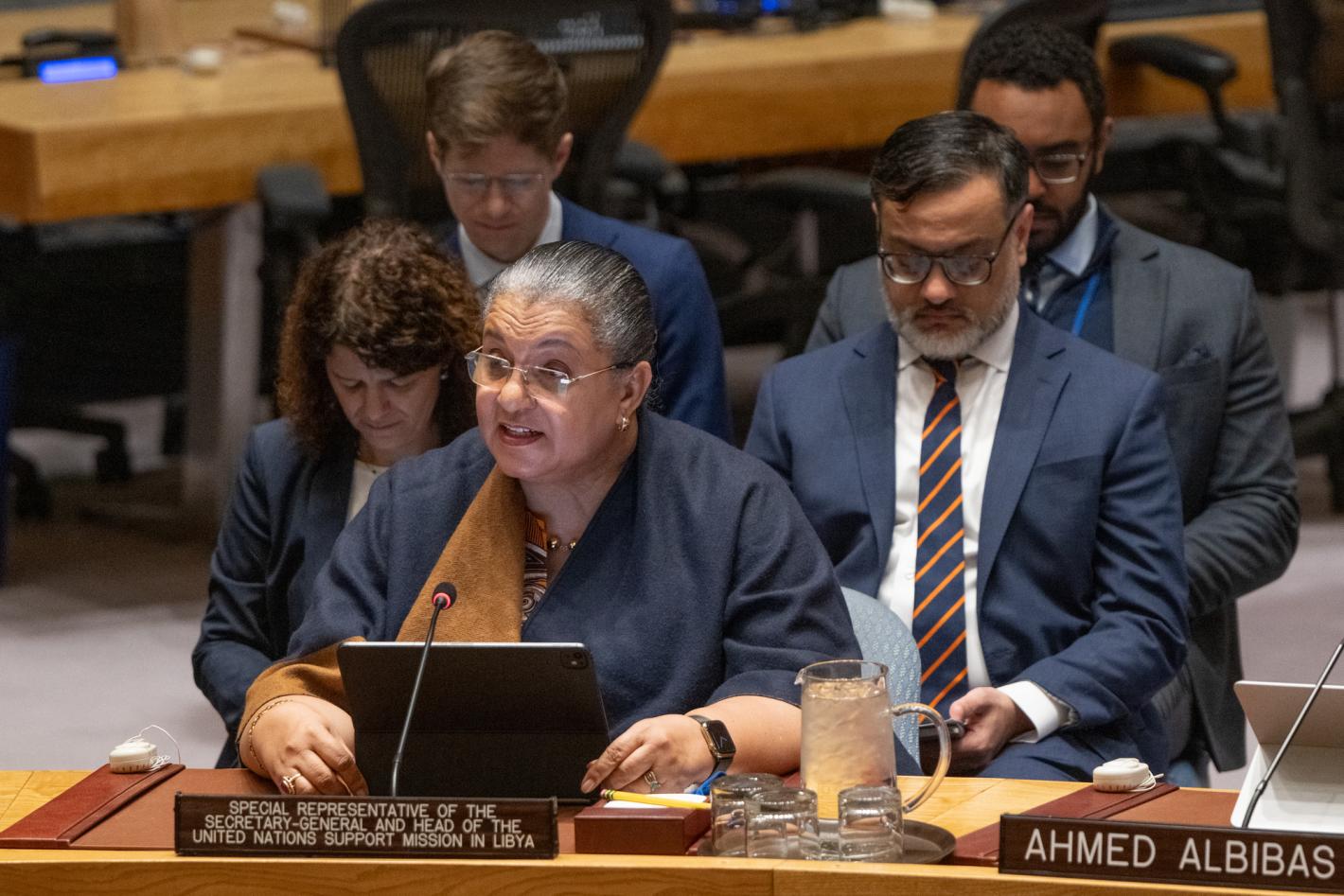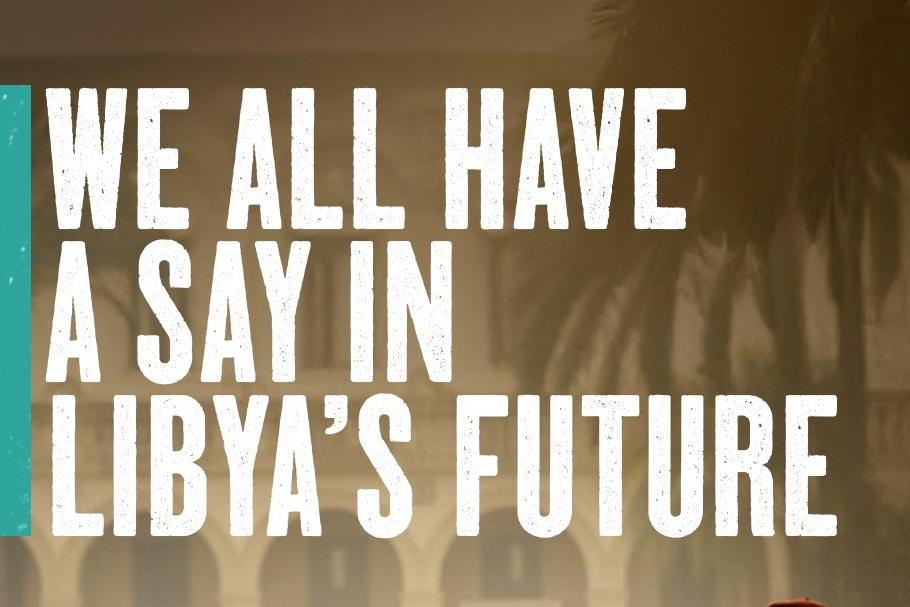Tripoli – As part of the United Nations Support Mission in Libya’s ongoing efforts to design a political roadmap that meets the needs of the Libyan people, Special Representative of the Secretary-General Hanna Tetteh on Tuesday joined a Zoom call with more than 160 Libyans to hear opinions and answer questions.
Opening the session, SRSG Tetteh reiterated the commitment she made to the Security Council to ensure the political process is not only Libyan led but also enjoys broad support from the Libyan public. So far, through public polling and in-person and online consultations, the Mission has collected input from more than 12,500 people across the country, including women, youth and cultural components, unionists and representatives of people with disabilities.
“In all the places we’ve been to, it’s not surprising that different people have different views,” SRSG Tetteh said. “What we are going to do is to try and consolidate these into a position that has the most acceptability on the way forward.”
UNSMIL’s proposed roadmap to resolve the political impasse and take Libya to elections will be shared with the Security Council during next month’s briefing, she said.
Many participants expressed concern about security issues and highlighted the need to resolve the economic crisis. Many cited that Libyan citizens had lost trust in all existing bodies and wanted the transitional period to end.
“UNSMIL and the UN in Libya are working with you—as Libyan citizens—to address some of these issues,” SRSG Tetteh said. “We cannot erase the past, but we can together build a better future. Transparency is important, and I am committed to building that trust with the Libyan people.”
One participant questioned: “Isn’t it time to solve the Libyan crisis?” Others asked how the Mission could guarantee that a political agreement would be implemented.
The SRSG validated Libyans frustration with the situation and raised the possibility of individual sanctions or other measures to ensure accountability.
“Now I can understand the skepticism of the Libyan people, especially because we’ve had processes that also were aborted,” she said, highlighting the importance of reflecting on past experiences. “It’s not in our interest to prolong this. What do we gain from it? It is rather an issue of how we can work effectively with the Libyan institutional actors to make sure that whatever we agree on is implemented.”
Key to successful elections, she said, echoing the recommendations of the Libyan Advisory Committee, will be strengthening the legal framework for elections and the capacity of the High National Elections Commission.
Some participants raised questions about whether a political process could move forward in light of the security situation and the impact that had on their daily lives. A number pointed to municipal elections in the east and south, which have been blocked, as a cautionary tale.
“We are going backwards talking about dialogue,” said one participant. “As long as there are militias, I am confident there will be no elections.”
“I care who delivers me services,” said another participant from Ghat. “I don’t have light ... I don’t have gas. The petrol situation is catastrophic. We wait three or four days to fill up gas.”
“Everyone knows the existing situation,” he said, but people don’t feel safe talking about it.
The SRSG acknowledged that “we need to have a security environment that allows for elections to take place. Otherwise, how is it going to be possible for people to exercise their democratic right to vote for their leadership?”
UNSMIL is in discussions with the leadership in cities and regions where municipal council elections have been postponed, SRSG Tetteh said, to find a resolution to the issues that are preventing municipal council elections from moving forward.
“We may not put everything that we are doing in the public domain because, at the end of the day, it is the results and the outcomes that are important,” she said. “But I want you to understand that we are monitoring the elections. We are also supporting HNEC. And we will continue to do so because we believe that these municipal elections will be a strong indication of whether Libya is going to be able to provide a security environment that will allow for other elections to take place as well.”
During the conversation, some participants shared their thoughts with the SRSG on the four roadmap options proposed by the Advisory Committee. (Advisory Committee Report and Recommendations | UNSMIL)
“There should be a real and inclusive conference of Libyans to have a constitutional basis to advance the electoral process,” one female participant said, adding that Libyans needed to take themselves forward.
Some participants expressed support for convening a political dialogue forum in accordance with Article 64 of the Libyan Political Agreement to establish a new interim government but raised concern about inclusivity and potential corruption.
“The UN Mission must integrate all components of Libyan society,” one participant said. “Participants in this dialogue must be selected independently.”






